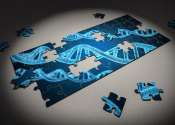A hybrid open-top light-sheet microscope for versatile multi-scale imaging
During image analysis, researchers use light sheet microscopy of cleared tissue as a preferred method for high throughput volumetric imaging. A flexible system can provide a range of sizes, resolution and tissue-clearing ...









